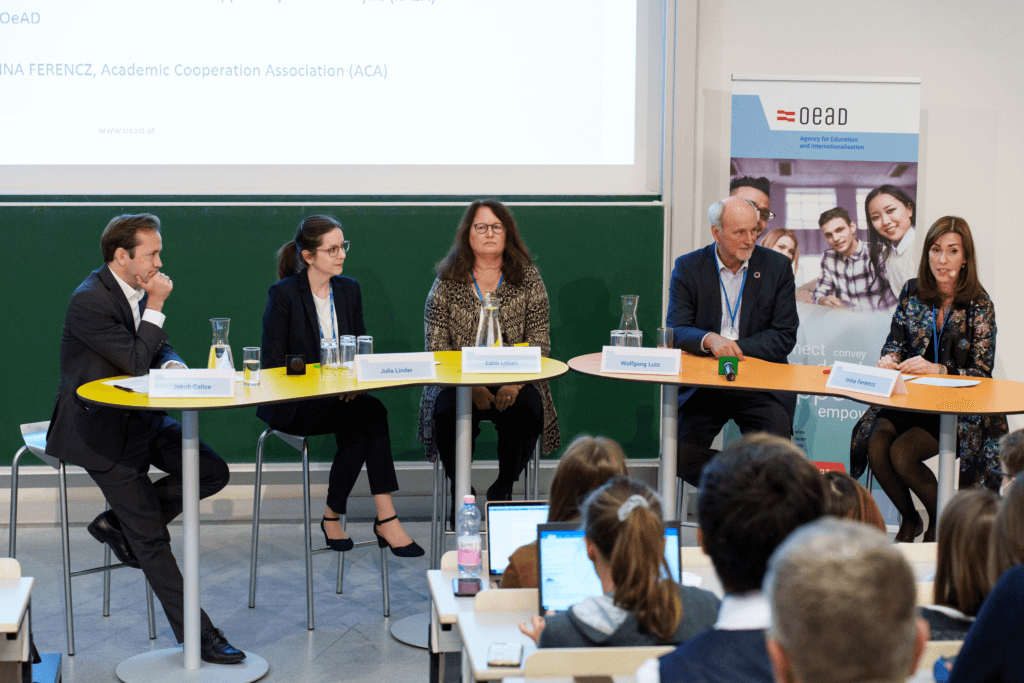Stay in the loop! Subscribe to our mailing list
Austria is discussing international collaboration
ACA member OeAD held its annual higher education conference (Hochschultagung 2022) in Graz on 21-22 September, addressing the challenging topic “Internationalisation in Higher Education in Times of Crisis of Confidence”. The event gathered over 150 participants on-site, and many more online, from Austrian higher education institutions and partners from abroad. Amongst the many interesting sessions at the event, the panel discussion moderated by ACA Director, Irina Ferencz, brought forward some key takeaways for the future:
 OeAD/APA-Fotoservice/Ferlin-Fiedler
OeAD/APA-Fotoservice/Ferlin-Fiedler
ACA’s TPG Global Developments
In early September, ACA members convened ACA’s newly established Thematic Peer Group (TPG) Global Developments. Chaired by ACA’s President Ulrich Grothus, this meeting specifically focused on some of the most pressing issues for Europe’s international collaboration in higher education and research at the moment, that is, working with and supporting the Ukrainian higher education sector. The members discussed other related issues, such as different approaches to dealing with Russian students and researchers, and exchanged ideas on how to pursue value-driven and risk-based approaches to cooperation more broadly.
Taking stock of national support measures for Ukrainian students, members reported that while kindergartens and schools experienced a stronger pressure, the demand for higher education among the Ukrainian refugees has been lower than expected, especially in Northern Europe. On the other hand, Central and Eastern European countries have a higher influx of Ukrainian refugees, although there has already been a sharp increase of Ukrainian and Russian students before the war.
Typically, there are three ways of enrolling Ukrainian students: through regular admission, incoming exchange students and free movers, and in most cases Ukrainian students are fee-waved.
Naturally, there is no institutional cooperation with the Russian higher education sector, but the Russian students and scholars are welcomed at European HEIs, although visa and travel restrictions might limit such visits in practice. Also, specific calls against discrimination of Russian students have been made in several countries.
Overall, ACA members and HEIs from their countries are pondering how to shift from the short-term, ad hoc support to more sustainable, long-term scenarios rebuilding the capacity of the Ukrainian HE sector to deliver quality education and research with due attention paid to the risk of brain drain.
National approaches to tackling global cooperation in uncertain times are being discussed in various countries. ACA’s upcoming position paper will provide further input for the ongoing debate on the responsible cooperation between European and its global partners.